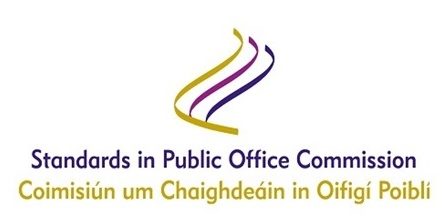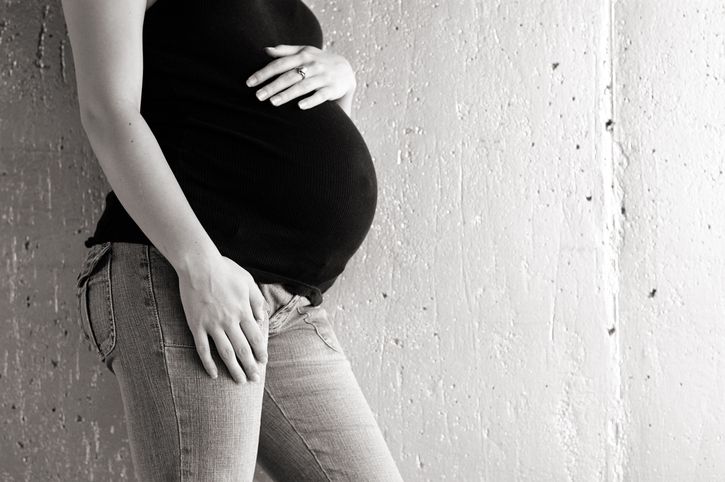
The latest figures from the UK show 1,272 women registered to have fertility treatment without a partner in 2016 – up from 942 in 2014 – the Human Fertilisation and Embryology Authority has said.
This figure represents a jump of 35% in the space of two years. Commenting on the latest figures, Professor Geeta Nargund, medical director of Create Fertility, a private IVF specialist, said: “More and more women are opting to start a family as single women either because they have not found a suitable partner or their partner is not ready to start a family. They are conscious that their biological clock is ticking and they do not want to lose out on genetic motherhood. There are also some women who are supported by their parents financially and emotionally to go it alone when they do not have a partner.”

Many of the main groups campaigning to repeal the Eighth Amendment refused to respond to a survey from RTE’s Prime Time concerning the sources of their funding. Prime Time reporter, Richard Downes, revealed that the Coalition to Repeal the Eighth Amendment declined to provide any details of the source of its funding or its spending plans, and it also refused interview requests. The Abortion Rights Campaign, which returned a €23,450 donation from George Soros’ Open Societies Foundation following a request from the Standards in Public Office Commission (SIPO), declined to take part in the survey. The Irish Council for Civil Liberties who in the recent past received €11 million in donations from Atlantic Philanthropies, also declined to outline their funding for the referendum campaign.
By contrast, all the mainstream groups campaigning to retain the Eighth Amendment, namely Savethe8th, the Pro-Life Campaign, Life Institute and the Iona Institute were forthcoming.
A spokesperson for Savethe8th, said that repeal groups were “treating voters with contempt” by their refusal to answer reasonable questions from RTE’s Prime Time programme about their funding.

The Pro Life Campaign has said it is “extremely concerned” about the new guidelines issued by the Broadcasting Authority of Ireland which do not oblige broadcasters to adhere to a strict 50:50 division of time during on-air debates in the lead up to the referendum on the Eighth Amendment.
Commenting on the BAI decision, PLC spokesperson Dr Ruth Cullen said the guidelines raises questions about whether the BAI itself is fit for purpose and can be relied upon to ensure fairness and objectivity in public broadcasting. “This body cannot be naïve to the fact that most broadcasters are already very one-sided in the way they cover the abortion issue. The new guidelines do nothing but exacerbate the problem”.
She continued: “The latest decision of the BAI raises very serious issues regarding the way public broadcasting operates in this country and the lack of commitment to fairness. You wouldn’t need to know very much about how the media works to spot how the latest BAI decision will be exploited by those in broadcasting who are more committed to their own personal ideological positions than to impartial and objective reporting.
“If we don’t receive satisfactory assurances in the coming days about how the guidelines will operate in practice, we will consider whatever options necessary to bring fairness to the debate.”
IN a follow up statement, spokesperson Cora Sherlock said the new guidelines creates confusion, not clarity, and will allow “more wriggle room for bias”.

A Church in County Down was subject to a protest led by a Sinn Fein MLA and numerous threats of violence on social media for showing a film dealing wtih the issue of same-sex attraction.
Pastor Rodney Stout spoke out after Christian group Core Issues Trust held the all-Ireland premiere of its film, Voices of the Silenced, at Ballynahinch Baptist Church, Co Down, on Tuesday night. The film, which says that gay people can “choose not to live out their homosexuality”, offers a critique of sexual politics in the Western world.
However, before the screening got underway a group of around 30 people, including Sinn Fein MLA Emma Rogan, gathered outside the church to protest what they thought was an advocacy of so-called ‘conversion therapies’, the use of inordinate methods to force a change in people’s behaviour.
The South Down MLA stated: “There is nothing wrong with being gay, lesbian, bisexual or transgender and Sinn Fein totally oppose the use of ‘therapies’ which are aimed to change, repress and/or eliminate a person’s sexual orientation, gender identity and, or gender expression”. Ms Rogan added: “Sinn Fein believe that ‘conversion therapies’ should be a banned throughout Ireland.”

Atheist Ireland have sent a number of questions to the Standards in Public Office Commission (SIPOC) to ascertain whether the Catholic Bishops are breaching laws on political donations by its funding of the Choose Life 2018 initiative. In a letter to SIPOC, Atheist Ireland say: “In 2018 the Bishops initiative includes a website and a weekly printed newsletter sent to all Dioceses around the country where its stated purpose is to encourage discussion in families on the value of every human life.” However, the letter alleges, the initiative “also overtly campaign[s] for a particular outcome in the coming referendum on the eighth amendment to the Constitution”. The group then asks SIPOC a series of questions that encourage an investigation of the the funding of the bishops’ initiative and to decide whether they should register as a political lobbyist.

Former Taoiseach John Bruton has spoken strongly against repeal of the Eighth Amendment and said that Ireland should be “proud” of having protection of the unborn child enshrined in its constitution. Mr Bruton said on Sunday, “To arbitrarily say that, after whatever number of weeks, it’s okay to suppress that life is just not in accordance with the values of charity towards the weak in our communities that have exemplified the Irish over the last many centuries.
“It’s true that we are probably one of the few countries in the world that has, in our constitution, an express recognition of the right to life of the unborn child, but that’s something we should be proud of,” he said.
Reiterating those comments on Newstalk Breakfast, today, he added: “We’re one of the few countries in the world that actually has in its Constitution a protection for the right to life – not just of a person after they’re born, but before they’re born as well.”
While many women already travel to the UK for abortions, Mr Bruton argued there will be “substantially more” abortions taking place among Irish people if the Eighth is repealed.

Minister for Children Katherine Zappone has accused the Catholic Church of a misogynistic tradition, and vowed to raise the matter with officials of the Holy See when she visits the Vatican and the Irish College in Rome on a diplomatic visit this week to mark St Patrick’s feast day.
Echoing former president Mary McAleese’s remarks from last week, Ms Zappone said: “I definitely concur with Mary McAleese’s thoughts. I would have been of that view for many, many years. I think it is really important to continue the dialogue and I will be both visiting the Holy See in the context of the ambassador’s residence and also having lunch in the Irish College in Rome”.
She said she will be there “as a senior minister from Ireland and bring a respect for different aspects of the tradition but certainly not the misogyny of the tradition of the Roman Catholic Church”.

Another group of publicans, this time in the town of Drumconrath in Meath, will resist pressure to treat Good Friday as a purely commercial trading day of no special significance by announcing that they will not be opening their pubs that day.
Dermot Muldoon, owner of Muldoon’s Bar, says Good Friday is a ‘very special day’ in Drumconrath. He told Pat Kenny: “The change didn’t suit us at all – we weren’t really for it at all.” Dermot said the idea to close the pubs arose during a conversation with the local parish priest, and the three publicans then came to the decision to stay closed as usual.
He explained: “When the pub’s closed… you’d head off for the day with your family, when they were kids of course. [You’d] have a day out, maybe go to some of the sights around Dublin… you can earmark things for that day, basically, because you are closed… And we get cleaners in on that day too, to clean the place top-to-bottom.”
He observed: “It was always a special day. At 3 o’clock we have the prayers at the stations of the cross. There’s a certain air around the village – a nice peaceful air. It’s very special, basically. [When the pubs close] that’s it – the whole place is shut down.”
On the subject of the pubs closing, Dermot’s mother Kaye added: “It’s a tradition here we always look forward to. There’s two days we get off – one is Christmas Day, and the other is Good Friday. It has been like that since I came here 55 years ago, and probably long before it.”

Standing at the door of her villa-style residence in Sandymount, one women in her late 30s, a young child by her side, said she would “probably be voting ‘No’ to repeal”.
“I totally agree supports for women with a crisis pregnancy in this country are totally inadequate, . . . But what I am hearing about the legislation [that would follow repeal of the Eighth Amendment] does not address my concerns. It would open up a whole new, unregulated industry of abortion. It would not be monitored. This is a country that is just not good at healthcare or regulation.”
A few doors down, a man in his 60s answered the door and looked at a leaflet offered to him, titled “Eight reasons to repeal the Eighth”. He asked what it’s about and when told raised his voice and said, “Get off this land and close the gate behind you.”
An older man who was on his way to the Aviva Stadium for the Ireland Scotland rugby match, said “People should be taking precautions. And there’s no way I’m leaving it to TDs”.

Pro-life feminists protested outside Leinster House yesterday as Minister for Health Simon Harris unveiled the Government’s plan to repeal the Eighth amendment and introduce an abortion regime even more liberal than that in the UK where 1 in 5 pregnancies, or 200,000 unborn children are aborted every year. Ninety-seven percent are done on’ mental health’ grounds. The Irish law will allow abortion for any and no reason up to 12 weeks, and on ‘health’ grounds after that.
In a statement ahead of the event, the group said Mr Harris had to realise that “abortion is anti-woman and anti-child, and that he is not helping women by pushing abortion, but is instead failing to assure women that his government will provide the compassion, help and support women need to raise their children”.
“We are tired of being told that we can’t be feminists and be pro-life, when the fact is, according to the polls, women are actually just as likely or more likely to oppose abortion,” the statement said.
“Pro-life feminists are sick of being lectured to by abortion campaigners who like to tell women what they can and can’t say – but Irish women are independent-minded enough to stand up to the bullying of the abortion industry.”